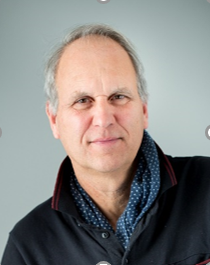
Carlos CANUDAS-DE-WIT
Research activity and field of expertise.
In the 80’s, research in the field of adaptive nonlinear control was in the early stages. I pioneered work in this field in connection with electro-mechanical and robotic systems. In the 90’s, I published several studies on the nonlinear control of mobile robots, non-linear robot control, and produced several important contributions to the modeling and control of systems with friction. At the end of the 90’s, industrial efforts in the field of vehicle control (Renault) and electrical drive control (Schneider) resulted in several patents being awarded. At the beginning of 2000, I re-oriented my research towards Networked Control Systems (NCS) and devoted substantial efforts to founding and consolidating a research group (the NeCS team) from 2006-2020, which is a joint team depending on the National Center for Scientific Research (CNRS), and the National Institute for Computer science and mathematics (INRIA) and the University of Grenoble-Alpes (UGA). My research topics originally focused on network control issues (including delays, loss of packages, communication protocols, fading, etc.), and then it extended to wider aspects of network systems, such as distributed control, consensus, optimal coverage, multi-hop networks, etc. From Sept 2016-22, the ERC Scale-FreeBack (Scale-free Control for Complex Physical Network Systems) project proposed holistic scale-free control methods for controlling complex network systems in the widest sense, and by investigating foundations for a new scalable control theory. Some of those finding I have demonstrated via open-web platforms:
- Grenoble Traffic Lab (GTL), a platform for real-time collection of traffic data, installed in the south ring of Grenoble in France,
- Grenoble Traffic Lab-Ville (GTL-Ville), a Grenoble downtown area to study traffic prediction in 2D,
- Grenoble Covid Lab (GCL) , a Grenoble mobility model to study how to optimaly attenuate epidemic spreading.
At present, my research focuses on the control of large-scale and complex physical networks with application to transportation networks and electromobility.
